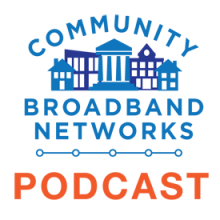CA Broadband Activists Aim For Big Wins On Mapping, Cable Franchise Reform
As California aims to boost broadband competition and Los Angeles County pursues what could be the biggest municipal broadband network ever built, local activists say they’ve made some meaningful recent inroads on both improving broadband mapping, and regulatory reform that should aid the equitable deployment of modern, affordable access.
Recently, inroads have been made on fixing long-broken California cable franchise law. In the early aughts, cablecos (and telcos pushing into the TV business) successfully lobbied for state-level “cable franchise reform” laws they promised would dramatically lower prices. In reality, such bills were often little more than legislative wishlists crafted by telecom giants.
Often these state-level replacements for local franchise agreements eroded legal regulatory authority, eliminated long standing requirements for uniform broadband and TV deployment, and in some states–like Wisconsin–even acted to strip away local consumer protections and eminent domain rights. Warnings by academics on this front were widely ignored.
Seventeen years after its passage, California activists say that California’s 2006 Digital Infrastructure and Video Competition Act (DIVCA) was no exception.











